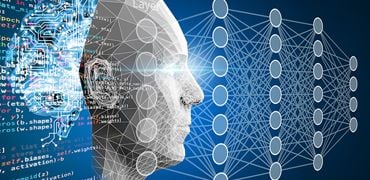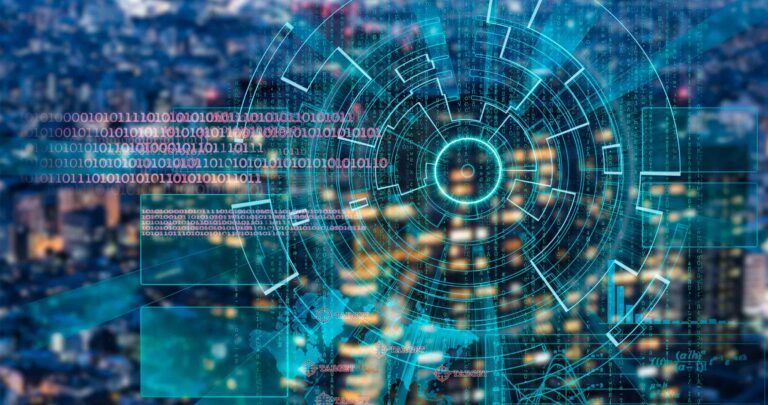What is Coding?

- What is Coding?
- A Brief History of Coding
- What is the difference between coding and programming languages?
- The Evolution of Programming Languages
- What are the most popular programming languages?
- Why should you learn to code?
- What career paths can you choose if you can code?
- Can you learn to code online?
For the uninitiated, coding is how humans talk to computers. If you have an idea, design, solution, or instruction, coding and programming are how the computer understands it. When you learn to code, you learn to design solutions or even design the future. Code drives and powers the digital world that we’re all a part of – from our smartphones to laptops, apps to websites, and appliances to getting the simplest tasks done. Given our dependence on everything virtual, coding has emerged as one of the most essential and transformational skills to learn. Let’s break this down further to answer the question, what is coding?
What is Coding?
Coding is the primary method for allowing intercommunication between humans and machines. In the nascent stages of coding, this was done using punch cards and physically placing them on the computer. Then, came computer programming languages that helped humans communicate with computers using a set of instructions. Essentially, this ‘set of instructions’ that tells the computer what it has to do is a ‘code’.
 How Does Coding Work?
How Does Coding Work?
In order to understand what coding is and how it works, we must firstly set the premise. In this case, the premise is that computers do not understand words or human languages. That may be a little difficult for us to process today as we all speak in voice commands to our Google Home devices, isn’t it? That is the beauty of code. Today, all our devices are coded to understand human languages through voice commands.
At its core, a computer runs on what we call a ‘binary code’ — a language that comprises infinite combinations of ‘zero’ and ‘one’. While binary code works perfectly for computers, it is difficult for humans to understand and interpret. Hence, different programming languages were invented to help coders translate binary codes into comprehensible human language. This smoothened the process of writing code and sped up the growth of a digital world.
A Brief History of Coding
If you want to know what coding is, we must go back to the beginning. History is not just for context; it also gives a clear sight of how something like coding, which is integral to our modern lives, evolved over the years. The following is a timeline of how the concept of coding developed historically:
First and second generation programming languages
|
Year |
Coder |
Achievement |
|
1843 |
Ada Lovelace |
First Code interpreting Bernecilli’s sequence for Charles Babbage’s Analytical machine |
|
1890 |
Herman Hollerith |
Herman Hollerith Tabulating Machine |
|
1940 |
Alan Turing |
Turing Machine to crack German ENIGMA codes |
|
1946 |
Kathleen Britten |
First assembly language + birth of second generation programming languages |
ALSO READ: Where Did All the Women in Coding Go?
Lady Ada Lovelace, wrote the first ever code for the Analytical Machine, a theoretical precursor to the computer, in 1843. Cut to post-Civil War America, where Herman Hollerith saw a ticket collector punch holes into tickets to indicate race, gender etc. of passengers. And Eureka, he was inspired to invent punch cards to communicate with computers that churned numbers way faster than humans could imagine
They say necessity is the mother of all inventions. And this rang true in the case of Alan Turning’s computer. England was sustaining heavy losses in the Second World War. Germany was gaining ground thanks to their unique code generating machine, ENIGMA. It transmitted communication in code that was nearly impossible to crack. If it was not for Turing’s machine, Germany might have won the war and you would be reading this article in German now!
However, the advanced version of Turing’s machine — Automatic Computing Engine — still spoke in binary codes, making the process of writing code very lengthy. Kathleen Britten, an English mathematician, wrote the first assembly language, which meant that a coder needed to write one statement per instruction to get the desired output from a computer.
What is the difference between coding and programming languages?
Coding is, essentially, a part of programming. Coding involves writing code or instructions for the computer to interpret human languages. Programming has a larger scope where entire programs are written in code to accomplish projects. A programming language is a specific language that is used to communicate with the computer. Codes can be written in different languages to achieve varied goals. For instance, a coder can use Structured Query Language (SQL) to scan a database while using C++ to develop operating systems. To sum it up, coding is a skill that requires the medium of programming languages to reach fruition.
The Evolution of Programming Languages
Wondering why we are beginning with third-generation programming languages? It is because first and second-generation programming languages were labeled into categories only after the invention of third-generation coding languages. Binary code is the first language of communication with computers and assembly languages can be classified as second-generation coding languages.
#1: Third-generation or high-level programming languages
Third-generation programming languages are known for their proximity to human languages. FORTRAN was the first-of-its-kind high-level programming language that signified speed and accuracy from the 1960s to the 1980s. The C languages dominated the coding front in the 1980s and early 1990s. There were also languages for specific purposes like Logo that worked for graphics and visuals.
#2: Fourth-generation programming languages or ‘Specialists’
You might have heard much talk of ‘domains’ that people specialize in. The concept of domain was parallel to the coming of fourth-generation programming languages. These were languages that were created to address the needs of a specific industry or area of interest. For instance, Python is used to develop websites which became a basic requirement for the flourishing of the internet in the 1990s.
#3: Fifth-generation programming languages and Artificial Intelligence (AI)
The latest batch of programming languages have actually changed the essence of what is coding used for. They have taken the job of coding away from human coders. These languages including Mercury, OPS5, and Prolog do the coding themselves. They are based on a problem/solution model where the coder just has to ask the right questions to communicate with the computer. In essence, this is AI or smart machines doing the job for humans while they concentrate on more complex tasks.
What are the most popular programming languages?
We have seen how different programming languages come from different generations. This is mainly based on the timeframe when they came into existence and their usability or proficiency to achieve an outcome.
The most popular coding languages are:
- Python: Used for applications in AI, data science, financial operations, and social media interactive sites
- JavaScript: Mainly used for website and mobile applications development
- Java: Most android mobile applications are built on Java
- C#: Used for operating systems like Microsoft or Windows
- C: Mainly used to program hardware devices like cars or medical devices
- C++: Best programming language for mathematical simulations
- Go: Used by applications that ‘stream’ a high volume of data like Google, Netflix, and Uber
- R: Used for statistical software
- Swift: Mainly seen in iOS applications
- PHP: Used for content-driven websites like WordPress and Wikipedia
Why should you learn to code?

Coding is slowly but surely becoming more of a life skill than a professional skill. We all use bits and pieces of code in our daily lives without even knowing it. These are the benefits of learning coding:
- Coding helps people develop an analytical mindset
- Coding helps you get better at problem solving
- Learning to code makes you more employable
- As a skill, coding is a silver bullet that helps get big pay packages
- If you can code, you can transform an idea into reality as an app, visualization or website
But, what is coding, really? How does it help and why should you learn to code? You will find a more overarching answer in the tweet below:
girls who code literally took me out of poverty, ask my filipino mother. for every 1 girl you teach how to code, she brings 3 more girls in. we're doing that with crypto and we're leaving no girls behind
— Diana Kris (@_dianakris) December 19, 2021
The truth is that you should learn to code because it can change your life. Don’t believe us; hear it from the people who have experienced the life-changing impact learning to code.
From art teacher to Extended Reality (XR) game developer
 At the end of 2021, Ashley Goldstein was an art teacher teaching middle school. We are in July 2022, and she is an XR developer working for Nvidia now! And this amazing transformation was facilitated by the Professional Certificate in AR/VR Development and 3D Graphics program from NYU Tandon School of Engineering, which she completed recently.
At the end of 2021, Ashley Goldstein was an art teacher teaching middle school. We are in July 2022, and she is an XR developer working for Nvidia now! And this amazing transformation was facilitated by the Professional Certificate in AR/VR Development and 3D Graphics program from NYU Tandon School of Engineering, which she completed recently.
“For some reason, coding is always thought to be in the opposite spectrum of art. But, since becoming a developer, I’ve really learned that to be a good coder, you have to have some kind of artistic capabilities. Also, I have been an online learner since I was a teenager. So, I know the importance of having the option to study online.”
Ashley Goldstein, Emeritus Learner
Ashley Goldstein is a mom to a 13-year-old and a proud pet parent. Read the full story of her transformation from art teacher to coder here.
From self-taught tech professional to a MERN expert
 Matt Elliot, who is an ex-Marine, called himself a self-taught technology professional who worked with stackable technologies. A C-suite executive in a technology company, he did not need to actually code himself. But, his work involved guiding programmers. And that is why he did the Professional Certificate in Coding by MIT xPRO to plug the gaps in his learning, which was mostly informal. Want to know how that turned things around for him?
Matt Elliot, who is an ex-Marine, called himself a self-taught technology professional who worked with stackable technologies. A C-suite executive in a technology company, he did not need to actually code himself. But, his work involved guiding programmers. And that is why he did the Professional Certificate in Coding by MIT xPRO to plug the gaps in his learning, which was mostly informal. Want to know how that turned things around for him?
“This learning has helped me immensely to earn the technology literacy that is required to communicate well with my team of developers and stay updated with the emerging trends in the IT industry. I see myself doing more specialized online courses in the future.”
Matt Elliot, Emeritus Learner
In the duration of this course, Elliot and his wife became parents to a baby girl too. Read the full story of his learning to code journey here.
What career paths can you choose if you can code?
What is coding but an umbrella term for several different skills. Hence, coders can explore different roles in the professional world using their skills. There are different ways to look at the roles within coding as an industry.
1: Domain Expert
First, roles in coding can be segregated on the basis of domains. For instance, if you have experience in running banking operations, you might be considered a domain expert in this field.
2: Programming Language Expert
Your expertise in using a particular programming language language can also be the basis for choosing roles. Some coders may have worked extensively with Python while others might have a deft hand at Java.
3: Skill-based Roles
According to Indeed.com, the following are the roles based on skills for coders:
- Computer Systems Engineer
- Computer Programmer
- Network System Administrator
- Web Developer
- Computer Systems Analyst
- App Developer
- Business Intelligence Analyst
- Database Administrator
- Software Quality Assurance Engineer
- Software Developer
- Front-end Developer
- Full-stack Developer
Can you learn to code online?
The short answer to this question is yes, you can learn to code online. In fact, anyone can learn to code online. Just five years ago, the general perception was that only science graduates or engineers could learn to code. But, that perception is being challenged now as professionals from different backgrounds are taking up coding courses to enhance their careers or change career paths. In fact, the option to learn coding online has broken the barriers in the field of coding.
Emeritus offers a range of coding courses that can help you understand what is coding from a basic level or teach you skills at an advanced level. For most of these programs, it is not mandatory to have any coding experience to enroll. If you aren’t sure where to begin or what coding language to learn, the first step would be to educate yourself on each coding language.
For feedback or collaboration, write to us at content@emeritus.org














